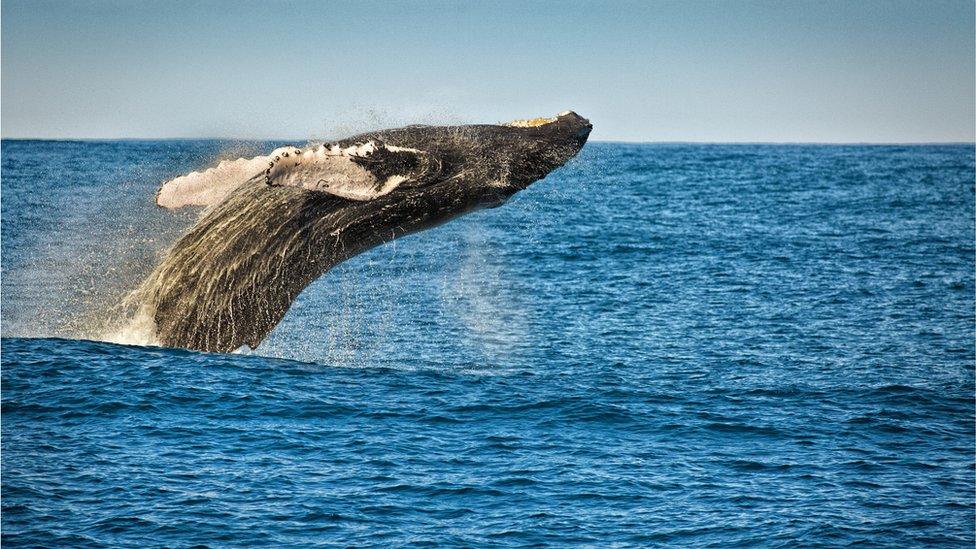Oceans can recover by 2050 if we act on climate change
- Published
- comments

Our oceans might be home to some of your favourite animals, from humpback whales to clown fish - but many marine species, habitats and ecosystems have been hit hard by human activity and suffered declines.
But there is some hope.
Researchers writing in the journal Nature now predict that the ocean could bounce back by 2050 if major threats such as climate change, too much fishing and pollution are dealt with.
Why are our oceans important?
The oceans are important for many reasons:
As sources of food, water and clean energy
For tackling global warming as they store heat and carbon
Coral reefs help biodiversity and can be used to develop medicines
Providing opportunities for eco-tourism which creates jobs for people living near the coast
We have a narrow window of opportunity to deliver a healthy ocean to our grandchildren's generation, and we have the knowledge and tools to do so
Why are our oceans in trouble?
Climate change, pollution and overfishing have caused devastation to our oceans, with some fish and other marine species having been hunted almost to extinction, while oil spills and other forms of pollution like plastic have poisoned the seas.
Increased temperatures and acidity in the ocean, associated with climate change, has also caused widespread coral bleaching - most notably in Australia's Great Barrier Reef.
This has caused big declines in the oceans' rich wildlife.
Warmer, colder, and polluted waters have changed the conditions of many habitats and a lot of marine species are unable to adapt to these new environments.
How can our oceans recover?
The good news is that scientists believe that marine life could recover by 50-90% by 2050 if action including tackling climate change and restoring habitats happens on a large scale.
According to the report, marine wildlife is very resilient - which means it is strong and has the ability to bounce back.
What is ocean conservation and does it work?
The goal of conservation is to protect species from extinction, maintain habitats and ecosystems.
Researchers recommend that we do the following conservation work to help our oceans recover:
Decrease fishing and hunting
Reduce pollution
Create marine protected areas
Restore habitat such as seagrass, saltmarsh and mangroves that have a positive impact on life in the oceans and also protect the coast from erosion
Rebuild depleted wildlife populations and ecosystems, not just protect already vulnerable habitats and species
Conservation work can be effective.
The number of marine species threatened with global extinction has decreased from 18% in 2000 to 11.4% in 2019, partly because more species have been assessed, but also because of conservation wins.
Humpback whales have recovered from the brink of extinction after migrating from Antarctica to Australia which has increased their numbers from a few hundred animals in 1968 to more than 40,000 today.
And northern elephant seals have increased from just 20 breeding animals in 1880 to more than 200,000 today.
- Published21 February 2020
- Published30 November 2019
- Published31 March 2020
